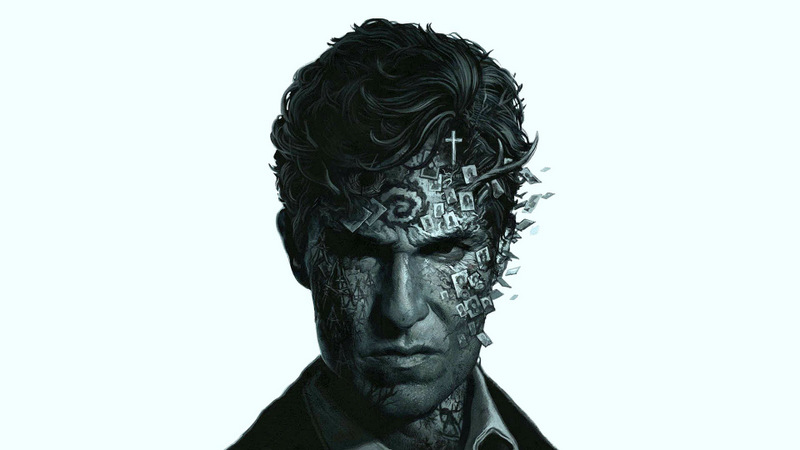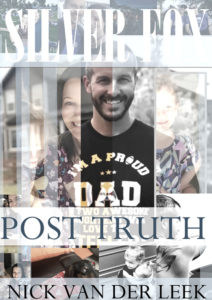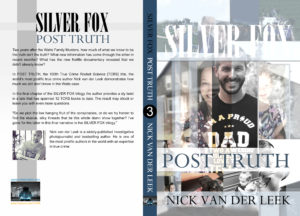Chris Watts thought he could get away with the annihilation of his family by crafting a story about just one thing.
Spite.
At 06:35 in her interview with 9News, Cindy Watts is asked how she found out about “them being reported missing”.

CINDY [Touching her mouth with two fingers, pressing them against her lips]: I think Ronnie called me. Ronnie called me and said that they’re missing…and, I thought…[swings head] I don’t believe it.
CINDY: I didn’t believe they were missing. I believe that she…was going to punish Chris.
Notice Watts’ mother says this in the present tense.
I believe that she…was going to punish Chris.
So the full psychological equation here, which isn’t elucidated very well right here by Cindy or the reporter, is that Cindy Watts knew over a period of time that her son was leaving Shan’ann, and so within that context, her taking off with the kids made sense to her. Because Shan’ann was a spiteful person, or she was often capable of being spiteful. Spiteful is an ugly, cutting word, so let’s consider it’s permutations:
malicious, mean, nasty, cruel, unkind, unfriendly, snide, hurtful, wounding, barbed, bitter, venomous, vindictive, vengeful, vitriolic, vicious, splenetic, malign, malignant, hateful etc.
So one of those, is what Chris Watts was getting at.
But what was it?
Maybe, according to him, she was just being mean or unkind. Or was she being cruel, or malevolent, or vicious? Of course, whichever one you think Chris Watts is accusing Shan’ann of, is the word we must accuse him for this murders. Was he just unkind or hurtful, or was this barbed, bitter wounding from him the barbed, bitter wounding that would eclipse all barbed and bitter wounding that had gone before?
We must look at the Sermon on the Porch through his psychology, and when we do, we can see why it must have felt good for him to stand in front of his house, and for him to be afforded the chance to speak for Shan’ann for once.
Instead of her always speaking for him, always drowning him out, now he could do what she did to him, he could be her voice. It must have felt good to suggest things about her, knowing the truth was his preserve, and his only, and that through the media, he he had the power to craft any narrative about her.
Whatever he said became her reality, almost like an enchantment. What a turn-around after all the months of MLM madness, all that time of being being pushed, moved and prodded like a pawn through all those meaningless spiels. Well how about this spiel! This was him getting his comeuppance. And not without a little of his own spite peppering proceedings, but carefully hidden behind a friendly manner and an armor of folded arms.

At this point we’re not interested in finding out whether Shan’ann did or didn’t kill the children, what we’re after is the psychological portrait Watts was sketching of her.
What was it?
It was of a vindictive, reactive, spiteful person. He makes a move against her, he tells her he’s leaving her, and then BAM she reacts. She reacts mercilessly, like a scorned tyrant, on her own children. And to Cindy this makes absolute sense. Chris Watts had to have known it would make sense to his mother. It had to be important that the scenario felt right.
In Watts’ affidavit and in his Sermon on the Porch his original version was that he told Shan’ann he wanted to separate and she immediately went into reprisal-mode – punishing him by killing the children.
This scenario of going missing to punish him, his original scenario, also felt right to the Thayers.
In their interview with 9News they also though Shan’ann had taken the girls in a huff after some minor or major disagreement. They thought this because that’s what Chris Watts told them, but it also made sense. It sounded to them like something Shan’ann might do, didn’t it?
NICK: I mean [Amanda chokes up on his shoulder] we really thought [wipes his nose with his forearm]…Monday night when we kind of heard about all this going on [before the Sermon on the Porch] we kinda thought ‘we’ll see her tomorrow. We’re gonna be with the girls tomorrow.’ [Shakes head]. I guess…I haven’t even processed the idea…that our friendship with Chris is no longer.
Again, Nick Thayer isn’t very specific about it here, but what he’s saying is he was also led to believe – directly, personally – by Chris Watts, that Shan’ann had just taken off with the kids. Maybe she was upset about something and she left so score a point.
Well, she would do that. She did do that, didn’t she?
A few days later they realized they’d been duped, betrayed, but they were duped because the lie fell on fertile soil. The scenario Watts was sketching made sense because they knew Shan’ann.
If we watch his Sermon on the Porch again, his demeanor is based on a scenario where him and Shan’ann had had a simple argument, he cares about her and the kids is how he’s presenting himself, but he’s no longer in a committed relationship, and she knows that, and that’s why she’s left.
Interestingly, he makes an “anonymous friend” the reason why she’s missing, a mirror on his own anonymous friend, and a mirror on his own knowledge about how and why this friend [potentially] is the “reason” they’ve gone missing.
In the first minute of that interview, when the reporter asks what happened – a wonderfully open-ended question – Watts sketches it as Shan’ann comes home [no big deal], he goes to work [no big deal] and then he gets a call from one her friends [is it a big deal?] and he returns from work, and he’s the last to know what’s going on [what’s the deal?]. Where’s Shan’ann? Where are the kids? He has no idea. Maybe she left. Maybe someone came and took them [according to an arrangement she made, and a subtle up-yours to him through that, leaving him in the lurch]. And if she doesn’t get back to him that’s fine [because stuff is going on between them], but if she’s not getting back to her people [he’s not her people], well that’s a concern.
All of that within the first minute. It’s a clever ruse except the part that he’s revealing is that it’s only important to worry about Shan’ann because everyone else is.
WATTS [Tongue flick, lowers head]: Uh, she came home from the airport, 2am, and I left around 5:15 [glances up] , she was still here [a lie, she was dead]…and…like…about 12:10…and that afternoon a friend Nickole showed up at the door [nods to the front door] , like I had texted Shan’ann a few times that day, called her, say, you know, but she never got back [slight asymmetric curling of the lip] to me. But she never got back to any of her people as well. And that’s what…really concerned a lot of people. Like, if she doesn’t, like if she doesn’t get back to me [shrugs] that’s fine, she gets busy during the day, but she diodn’t get back with her people which was very concerning. And Nickole called me when she was at the door [opens folded arm and motions to the door] and that’s when I came home. [Dogs barking in background]. And then walked in the house and [looks sidelong into the house] nothing [a slight smile and curl of the lip here too. He’s pleased with his handiwork]. Just vanished. Nothing was here. I mean she wasn’t-wasn’t here. The kids weren’t here. No-nobody was here.
In this version, Chris Watts is leading his audience into a scenario where he goes to work, is summoned home and his wife and kids are gone. Just vanished. He called her, she never got back to him or anyone else. He’s shifting the buck to her. He wants his mother and the Thayers and those close to him to think not what has he done, but what has Shan’ann gone and done?
When I first came to this case, I wondered why there is this extraordinary degree of sadism involved. There’s not just the killing of a woman, but a pregnant woman. Not just the killing of one daughter, but two. Not just the killing of these four flesh-and-blood beings but the unholy dumping of their bodies in oil and dust. There’s sadism – and shame – there too. The psychological mirror for sadism is humiliation. In some way, Chris Watts felt intensely humiliated over a long period of time. The narrative that so many are opposed to [understandably at this stage], that there was a spiteful aspect to Shan’ann’s personality, awakens the possibility that this was the root of his sadism.
It doesn’t make it right or reasonably, but it may go towards explaining why, not so?
And there’s an added reason why so little of the Sermon of the Porch made little sense, and stretched Chris Watts’ credibility to breaking point. There was one word he didn’t mention during the interview. This is a question for those who haven’t read any of the TWO FACE books. What word should have been the first word to use during the interview, and it’s a word he simply never mentions once. I’ll deal with that in a separate post, but you can start pondering on this so long.

































Recent Comments